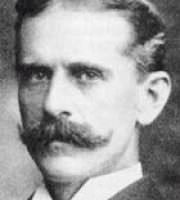by Peter Filkins
I
When Hitler married Eva Braun
just days before committing suicide,
the war now lost, the Allies advancing,
all of Berlin reduced to rubble,
was it blind love that drove him on
to marry Eva while defying his generals
who wanted nothing more than to surrender
ten-year-old boys still left to defend
Blut, Boden and Reich for their Führer
trapped in a bunker, no way out
but to marry the woman who loved him
and sought the blessing of God her maker?
II
In Otto Weidt's workshop for the blind
one can still see the machines they used
for brooms and brushes wound in the dark
insidious days before the deportations,
Weidt's own secretary, Alice Licht,
landing in Auschwitz, where, because
of his love, he made them an offer
on brooms and brushes in order to find
Alice alive and in a neighboring camp,
though he didn't see her but only heard
she'd received the packages he'd sent
without knowing if he'd ever see her again.
III
Could it be true Frau Goebbels played
a game of solitaire after having killed
all five of her children as they slept,
cyanide preferable to what she imagined
the Russians would do once they arrived,
the children depending on her to help
soothe them asleep as the bombing continued
to pummel the air above the game
that she laid out, snapping crisply
each card on the table she had just used
to mix the doses the children drank
gladly before bedtime, could it, could it?
IV
'If only things could remain the same,'
Alice wrote to Otto on a card
thrown desperately from a passing train
and mailed anonymously by someone
who read, 'Whoever finds this drop it
in a mailbox,' or 'no trace of Ulkus,'
or 'greetings Pappi! ... heading to Birkenau'
and knew, despite the fact that Alice
would survive, come back to Berlin and leave
for America, where she would then marry,
ignoring Otto's dying plea for her to return,
this was a message of hope for the future.
V
And so each night the prisoners played
scales and arpeggios, a Dvo?ák quartet,
secretly in the hold of the pathology lab
where by day the bodies were dissected
in search of abnormalities, the delicate
instruments filling the room with music
played from a score laid out on the table,
for all they knew this being their last
performance together while sawing away
at the hopeless, shattering grief contained
in the second movement of Schubert's Eighth,
haunting and beautiful, and unfinished forever.





